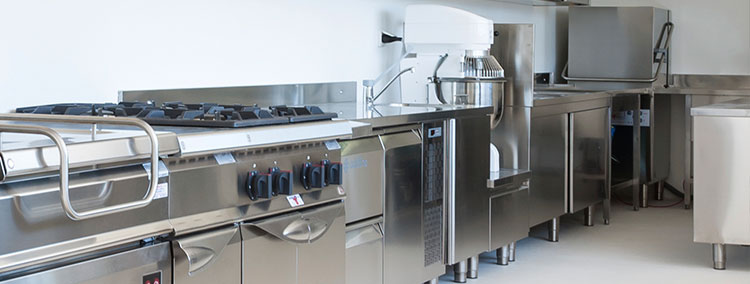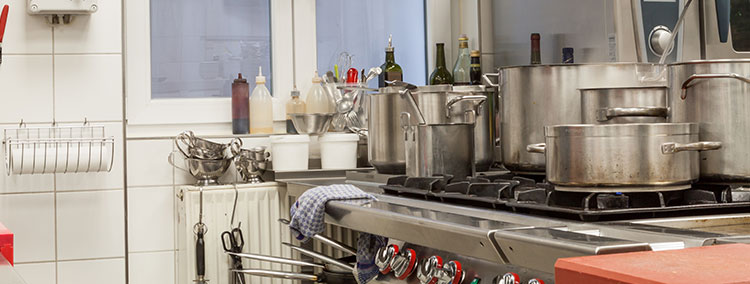Are you wondering which are the common parts that break down in your appliance? Here they are as given by appliance repair professionals:
Refrigerator
The ice maker draws water into uniform ice molds. Once the cubes have formed, the molds are heated or twisted to release the ice, and a sweep arm ejects them into a container to be distributed as needed.
In the refrigerator, this is the most common part that breaks down.
Problems with the water supply are the most common reasons ice makers stop working. Ice makers require a constant supply of water to function effectively.
The ice maker may stop working if there is a problem with the water supply, such as a plugged or frozen water line. Examine the water line to ensure it is correctly connected and not kinked or blocked.
The water inlet valve controls the water flow into the ice maker. Water may not reach the ice maker if the valve is faulty or obstructed. This can result in no or insufficient ice production.
Ice can collect and jam the ice maker mechanism over time, preventing it from working correctly. This can happen in the ice mold, the ice chute, or the water line, causing the ice-making process to slow.
Regardless of why your ice maker isn’t working, you should try out troubleshooting methods specific to your model, listed in the user handbook.
If the problem persists, it is recommended that you contact a professional technician or the manufacturer’s customer care for assistance.
Dishwashers
In most cases, you won’t notice most dishwasher problems immediately. Your dishwasher will gradually stop washing well until you’re fed up and wondering what’s happening.
The most common problem with dishwashers are clogged filters and spray arms. Over time, dishwasher filters and spray arms get clogged with food particles, debris, or hard water deposits.
When these components get clogged, water flow is impeded, resulting in poor cleaning performance or a dishwasher that won’t finish a cycle.
In other cases, the problem is brought about by overloading the unit. Overloading or poorly loading the dishwasher can obstruct the spray arms, prevent adequate water circulation, or interfere with the operation of other components.
To avoid damaging your dishwasher, follow the manufacturer’s instructions when loading your dishwasher.
In rare cases, your impeller will break. The impeller is the pump that creates the water pressure required to spin the spray arms.
If a seed, pit, or piece of glass gets inside the pump, it might cause harm. You should address this problem as soon as possible.
This can cause water to flow into the motor and onto your floor. How will you know if your impeller needs to be replaced? There will be a loud rumbling noise.
As mentioned, you should move with haste and fix it before things turn for the worse.
Washers
The most common parts that break in a washing machine are:
The door or lid switch: Prevents the drum from spinning until the door or lid is shut.
The drain pump: It is responsible for removing water from the drum.
Tub bearings Keep the tub in place and allow it to spin smoothly.
When your washing machine has problems, it will make squealing and knocking sounds.
A worn or loose belt often causes a squealing noise. The belt that drives the drum might have become worn or slack over time, causing it to slip or squeak. This problem means it’s time to get a replacement for the belt.
You will hear the sound if the motor is malfunctioning. You should contact a professional technician to inspect and repair the motor in such instances.
Knocking sounds often come about due to loose or damaged parts. Check for any things that might have fallen into the drum or trapped between the drum and the tub, such as buttons or coins.
Unsecured drum paddles or tub mounts might cause knocking sounds during the wash cycle. Find out where the noises are coming from.
Dryer
The common parts that break in the dryer are:
Thermal fuse: Prevents overheating of the appliance.
A wire coil in an electric dryer or a burner in a gas dryer serves as the heating element.
A continuous piece of felt wrapped around the rim of the drum allows it to spin while controlling airflow.
The beauty of most dryers is that they are often well made, and as a result, there are relatively few dryer problems that cannot be fixed—it is uncommon to have to replace the entire unit due to this problem.
How to ensure your appliances last for a long time
You must do several things to prevent your appliances from breaking down often and ensure they last for a long time. These things include:
Ensure that your appliance is properly installed. This calls for you to follow the manufacturer’s installation instructions. Remember that improper installation can cause problems with performance or even damage the unit. After buying the unit, take time to find an experienced professional to help with the installation. Don’t hire just anyone.
Because appliances are susceptible to power fluctuations, it is critical to ensure that you have a stable power source. Use surge protectors or voltage stabilizers to safeguard your appliances from voltage spikes and electrical surges.
Keep your outside and inside appliances clean by regularly wiping off surfaces and following the cleaning recommendations. Remove any accumulated dust, grime, or debris to ensure proper functioning.
It’s wise to have a maintenance routine for each of your appliances. Regularly inspect and clean filters, vents, coils, and other components during maintenance, as directed in the user handbook.
Also, arrange for professional servicing or tune-ups to keep the appliances in good working order.
As a rule of thumb, ensure that the servicing is done by an expert commercial appliance repair Springfield who knows what they are doing.
Regardless of how versatile an appliance can be, use every appliance for its intended purpose and only utilize it for tasks it was not built for. For example, don’t use a dryer as a heater.

